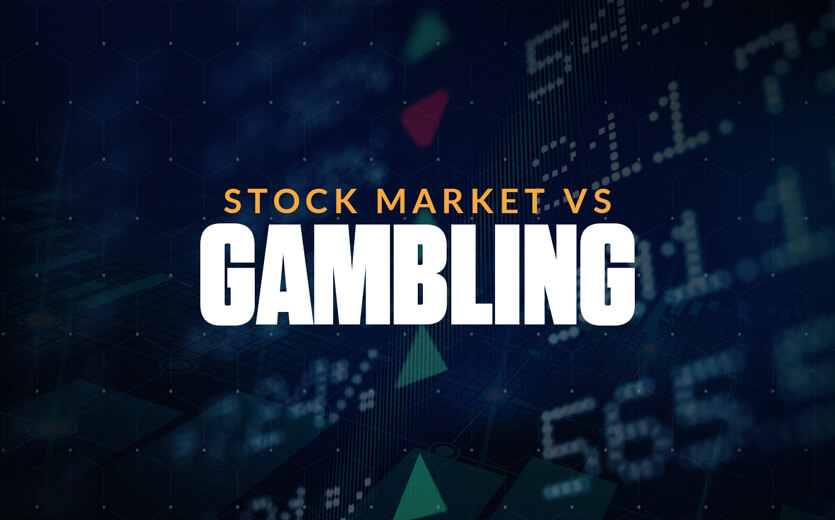The idea that there is more money invested in sportsbooks worldwide than in the stock market may seem unexpected, but there is more to the reason for the growth of international sports betting. There is a cultural, psychological, and financial case to be made that sports betting has attracted greater attention—and possibly more personal financial risk—than the stock market, despite the stock market’s estimated global value being far greater than the size of the sports betting industry.
The quantity of money engaged in gambling has increased dramatically as sports betting emerges as a major global phenomenon, particularly when regulatory restrictions loosen in large economies like the United States. So establishing a substitute financial environment that is similar to, but in many respects superior to, the conventional stock market.
The Sports Betting Boom
The world of sports betting has been expanding particularly in the last few years. The market for sports betting was estimated to be worth over $85 billion worldwide by 2022, and it is expected to grow to $182 billion by 2030. Since the federal ban on sports wagering was repealed in 2018, the legal sports betting market in the U.S. has flourished. Millions of individuals can now gamble on their favorite sports more easily than ever thanks to the rise of platforms like DraftKings, FanDuel, BetMGM, and others. However, the official industry size is not accurate in presenting the whole reality. A significant portion of the sports betting industry functions in the background of illegitimate or uncontrolled activity. Unregulated sports gambling is rife, with trillions of dollars at stake annually, in many nations, including large portions of Asia, Europe, and even the United States. Taking into account unofficial bets, personal wagers, and black market operations, the amount of money involved in sports betting worldwide is astounding and almost equal to the volume of activity in the stock market.
A Daily Investment for Millions
While many people invest in the stock market passively through retirement accounts or long-term savings strategies, sports betting is a more active and hands-on form of “investment.” Millions of bettors place wagers daily on a variety of sports ranging from football and basketball to horse racing and even esports. This level of day-to-day participation far outpaces the activity of the average stock investor, who may check their portfolio once a month or even less frequently.
The psychology of sports betting also differs dramatically from that of the stock market. In traditional investing, risk is often calculated based on long-term trends, data, and financial metrics. In sports betting, emotional engagement and gut instincts drive decisions as much as logic does. This emotional investment creates a cycle of immediate gratification, where bettors continuously engage, betting on everything from individual games to season-long outcomes. For these bettors, the thrill of winning—and the hope of striking it rich—is far more immediate than the returns one can expect from the stock market.
The Economics of the Bookmaker
The business model of sportsbooks has become increasingly sophisticated. Just as stock markets are designed to favor those with insider knowledge and resources, sportsbooks are optimized to ensure that, over time, “the house always wins.”Sportsbooks employ complex algorithms and data analytics to set odds that minimize their risk while drawing in as many bets as possible. The sheer volume of bets placed globally gives sportsbooks a guaranteed profit margin, even when paying out large winnings.
In contrast, stock markets—while also favoring those with resources, knowledge, and algorithms—are designed to allow wealth creation for individuals through capital appreciation and dividends. However, the key difference is that betting doesn’t produce anything. It is a zero-sum game: for every dollar won, someone loses a dollar. In the stock market, wealth can be created through business growth, innovation, and dividends, providing value over the long term.
Yet for millions, the allure of fast money through sportsbooks eclipses the more methodical, slower returns of the stock market. As betting platforms become more accessible, with mobile apps allowing users to wager from anywhere, anytime, the convenience and immediacy of sports betting outpace the often abstract, far-removed nature of stock trading for many individuals.
Betting vs. Investing: A New Form of Wealth
The difference between betting and investing has become increasingly hazy, especially with the emergence of apps like Robinhood that simulate sports betting in the stock market. A new generation of investors views investing as a kind of gambling thanks to apps that support fractional shares, micro-investing, and gamified user interfaces. Even while more people may have entered the stock market as a result, the gamification of wealth accumulation on sites like Robinhood is similar to the quick, instinctive, and intensely emotional nature of sports betting.
Similar to this, sports betting sites promote themselves as a tool to make strategic investments based on sports knowledge rather than as a way to “gamble”. Bettors are presented with the notion that betting is a calculated risk, similar to stock market trading, due to the appearance of control over outcomes, the wealth of data and analytics available to them, and the skill-based aspect of certain types of betting, such as fantasy sports.
Cultural Dominance and Global Reach
The stock market lacks the huge cultural impact of sports betting. Sports are a global event that attract billions of people, and big events like the Olympics, Super Bowl, and FIFA World Cup generate a lot of betting activity. Though vital to the world economy, the stock market is not as popular with everyone.
Sports bettors participate in rituals, conversations, and debates related to their bets, frequently viewing themselves as members of a larger community. From pre-game analysis to live, in-play betting updates, betting debates take center stage on sports talk shows, internet forums, and social media. The stock market, with its complex and wealthy atmosphere, just cannot compete with this cultural integration of betting into the ordinary experience of sports fans in terms of daily relevance.
Where the Real Risk Lies
The amount of money moving through sportsbooks, especially when one takes into consideration unregulated and informal betting, reveals a world where gambling is becoming more and more prevalent, even though the stock market still dwarfs the legal sports betting business in terms of total valuation. A distinct type of investment is captured by sports betting; this type of investment is instantaneous, emotive, and, for many, a daily activity that resembles a financial commitment just as much as typical stock investments. Depending on your perspective, this may or may not be viewed as a beneficial trend. On the one hand, the popularity of sports betting makes it easier for anybody with a smartphone to participate in a risk-taking and wealth-building activity. However, millions of people who view betting as a means of becoming wealthy rather than as a kind of fun run the risk of experiencing financial hardship. In any case, a significant part of the world economy’s wealth is now concentrated in sportsbooks rather than the stock market, where the risks are higher and the results are frequently more immediate.







